Posted on 12/19/2025
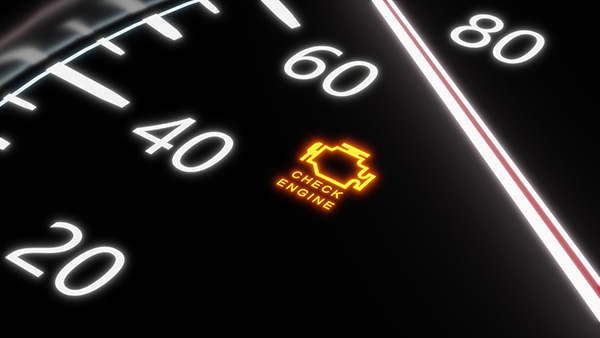
When the check engine light comes on, and the car still feels mostly normal, the oxygen sensors are often involved. They sit quietly in the exhaust stream, measuring gases that most drivers never think about, but the engine computer relies on those readings constantly. When a sensor starts to fail, or its signal does not make sense, the computer has no choice but to turn that light on and protect the engine and catalytic converter as best it can. Why Oxygen Sensors Matter More Than Most Drivers Realize Oxygen sensors help the computer decide how much fuel to deliver at any moment. They provide feedback on whether the engine is running rich or lean, so the system can adjust and keep the mixture in a narrow, efficient range. That control affects fuel economy, smoothness, emissions, and catalytic converter life. Without accurate O2 sensor data, the computer is forced into a backup strategy. It uses preprogrammed values instead of live feedback, which keeps the car run ... read more
Posted on 11/28/2025
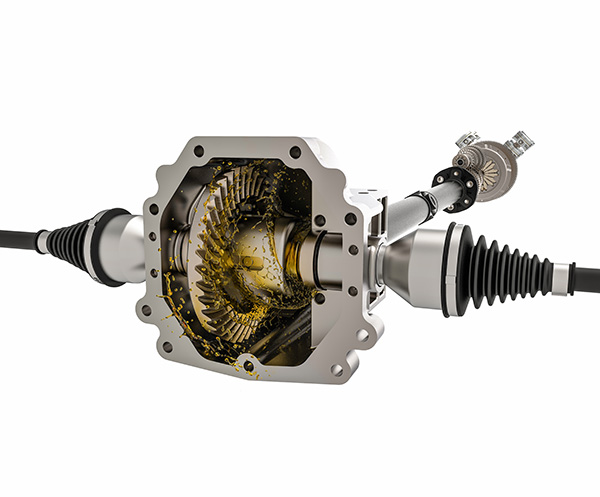
A healthy rear differential works quietly in the background. It lets the left and right wheels turn at different speeds in corners and sends power to the pavement without drama. When fluid breaks down or parts wear, the clues start small. Catching them early keeps the ring and pinion happy, prevents axle seal leaks, and avoids the kind of noise that makes highway drives stressful. 1. Whine or Howl That Changes With Speed A rising whine between 30 and 60 miles per hour often points to gear wear or low fluid. If the pitch changes as you lift off the throttle, that is another clue the sound is coming from the ring and pinion rather than the tires. Fresh fluid can quiet a mild whine, especially if service is overdue. A loud, steady howl suggests wear has progressed, and the gear pattern needs a professional look. 2. Clunks When You Shift From Park to Drive A single clunk as the vehicle takes up load can come from worn differential bushings, excessive b ... read more
Posted on 10/31/2025
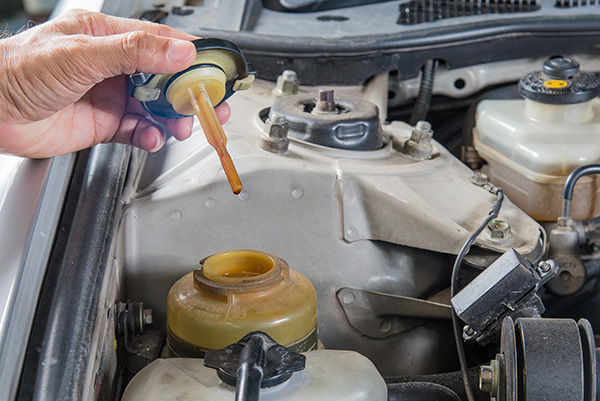
Power steering fluid keeps your steering system smooth and responsive. It’s necessary for transferring pressure from the steering wheel to the wheels themselves, helping you turn with ease. Over time, though, this fluid degrades. It picks up moisture, dirt, and metal particles from inside the steering components, which can lead to sluggish performance and wear inside the system. If the fluid is never changed or checked, your steering could become stiff or noisy. Worse, it can lead to damage in the power steering pump or rack, which are expensive parts to replace. What Power Steering Fluid Actually DoesWhen you turn your steering wheel, the power steering pump sends fluid through a system of hoses and valves. This fluid builds pressure behind a piston in the steering rack, helping the wheels move with much less effort than manual steering. Without this hydraulic assistance, every ... read more
Posted on 9/26/2025
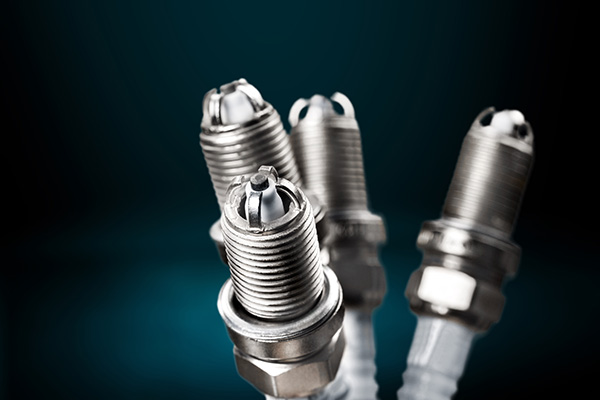
Spark plugs may be small, but they have an outsized role in how well your car runs. These components ignite the air-fuel mixture in your engine’s cylinders, setting off the controlled explosions that power your vehicle. Over time, spark plugs wear down, and their performance declines — which directly affects acceleration, fuel efficiency, and overall drivability. Replacing spark plugs at the right intervals can breathe new life into your engine. Let’s explore how fresh spark plugs enhance performance and why staying on top of this maintenance is crucial for maintaining long-term vehicle health. Why Spark Plugs Are Important Every time you start your engine, spark plugs generate a small but powerful electrical spark to ignite the compressed fuel-air mixture. Without properly functioning plugs, the combustion process suffers. This can lead to misfires, inefficient fuel burning, and reduced power output. Fresh spark plugs provide consistent ignition ... read more
Posted on 8/29/2025
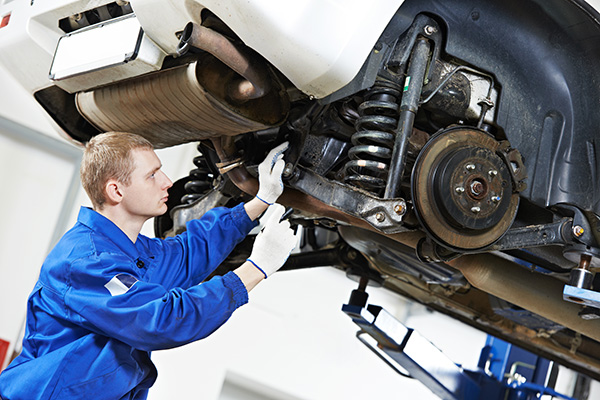
Your car’s suspension system plays a vital role in ride comfort, stability, and control. When it’s working properly, bumps are softened, tires stay in contact with the road, and handling feels predictable. However, over time, wear and tear can affect the performance of your suspension. If you’ve noticed changes in how your car feels or sounds while driving, it may be time to have the suspension checked. Here are five signs your vehicle's suspension may need professional attention. 1. Bumpy Rides and Poor Comfort If your daily drive has started to feel more like a roller coaster, that’s a major red flag. The most obvious sign of suspension trouble is a noticeably rough or bouncy ride. The suspension is designed to absorb the shocks from potholes and uneven pavement, keeping the cabin relatively smooth. When shocks or struts are worn, they can no longer dampen movement effectively. You might feel every dip in the road or notice the vehicle ... read more
Posted on 7/25/2025
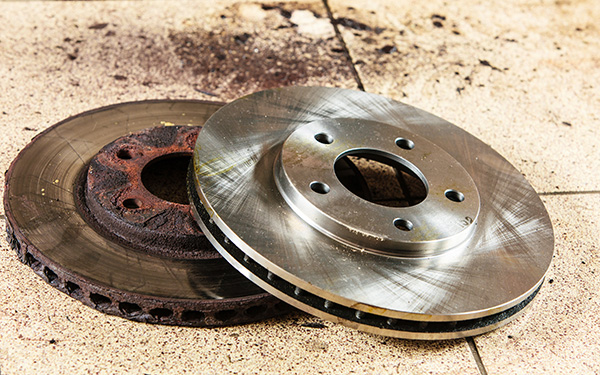
When it comes to keeping your car safe, your braking system is one of the most important parts to maintain. While most drivers are familiar with replacing brake pads, brake rotors often get overlooked until serious issues arise. Brake rotors work in conjunction with your brake pads to generate the friction necessary to stop your vehicle. Knowing when to replace them can make the difference between a smooth, safe stop and a dangerous situation on the road. What Are Brake Rotors Brake rotors, also called brake discs, are large metal discs attached to each wheel. When you press the brake pedal, the brake pads clamp down on the rotors, creating friction that slows and stops the vehicle. Over time, rotors experience extreme heat and pressure, which can cause them to wear down or become damaged. Common Signs Your Rotors Need Replacement One of the clearest signs your rotors may need attention is vibration or pulsation when you press the brake pedal. This ... read more
Posted on 6/27/2025
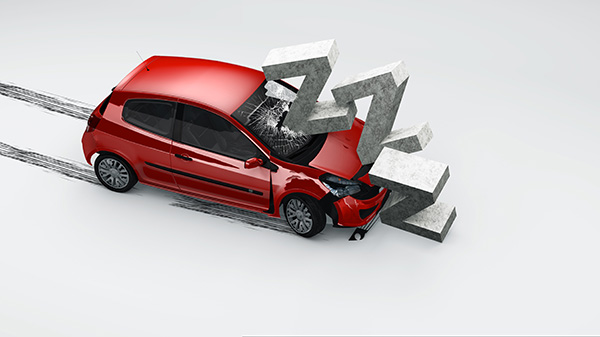
Most drivers would never even dream of getting behind the wheel while intoxicated, but many don’t think twice about driving while exhausted. Yet, fatigue affects your body and brain in ways that are surprisingly similar to alcohol. When you’re tired, your reaction times slow, your focus drifts, and your ability to make quick decisions declines—all critical functions when you’re on the road. Let’s look at why driving tired is so dangerous and what you can do to stay safe when fatigue starts to creep in. What Happens to Your Brain When You're Sleep-Deprived Lack of sleep dulls your brain’s ability to process information and stay alert. Studies have shown that being awake for more than 18 hours can impair your driving as much as having a blood alcohol concentration (BAC) of 0.05%. After 24 hours without sleep, your performance drops to the equivalent of a 0.10% BAC—higher than the legal limit in all 50 states. When you&rsq ... read more
Posted on 5/30/2025

Few vehicles have a reputation quite like the Hummer. Love it or hate it, the Hummer is hard to ignore—massive, bold, and unmistakably rugged. While it may be best known for its larger-than-life image on American roads, the Hummer’s story actually begins on the battlefield. And over the years, its journey from military workhorse to civilian status symbol has made it one of the most iconic SUVs ever built. Here’s a look at how the Hummer came to be, why it made such a splash in the auto world, and what its legacy looks like today. From Military Roots to the Mainstream The Hummer's origin lies with the U.S. military’s High Mobility Multipurpose Wheeled Vehicle—better known as the Humvee. Originally developed by AM General in the early 1980s, the Humvee was built for durability, off-road capability, and versatility in combat zones. It could go nearly anywhere, carry heavy loads, and withstand rough terrain and extreme weather. In the ... read more
Posted on 4/25/2025

That subtle rattle behind the dash might seem harmless at first—but once you hear it, it becomes impossible to ignore. Whether it’s a soft ticking sound, a plastic vibration, or a persistent buzz, a dashboard rattle can turn a quiet drive into a noisy irritation. And unlike obvious mechanical issues, rattles tend to hide until you’re paying close attention—or stuck in traffic with no way to drown them out. The challenge with dashboard noises is that they can come from just about anywhere—loose trim, internal wiring, or even something inside the vents. Fortunately, you don’t have to live with it forever. With a little patience and the right approach, it’s often possible to track down and fix the cause. Start With When and How It Happens The first step in locating a dashboard rattle is paying attention to the conditions under which it occurs. Does the rattle happen only when driving over bumps? Does it get louder with speed? I ... read more
Posted on 3/28/2025

Spring is the perfect time for road trips, weekend getaways, and spontaneous adventures. Warmer weather and longer days make hitting the road even more appealing, but before you set off, it’s important to make sure your car is properly packed. Bringing the right essentials can keep your trip stress-free and ensure you're prepared for whatever comes your way. From safety must-haves to comfort items, here’s everything you need to pack for a successful spring journey. Emergency and Safety Essentials Even the best-planned trips can come with surprises. A flat tire, unexpected breakdown, or bad weather can leave you stranded if you’re not prepared. Packing a few key safety items ensures you’ll be ready for the unexpected. Keep a spare tire, jack, and lug wrench in your vehicle so you can quickly replace a flat if needed. A set of jumper cables or a portable jump starter can save you if your battery dies in the middle of nowhere. A flashlight w ... read more